Seven-year-old Nastya Buryk died this week. Her life was short, with precious little peace or comfort. The brutal and unexpected way in which it ended, 1,000 miles from home, reflects a world swept by wars in which the innocent suffer most.
Nastya came from Odesa, Ukraine’s largely Russian-speaking port on the Black Sea. In early 2022, the city came under regular missile attack after Russia launched its full-scale invasion of Ukraine.
Nastya’s family life began to unravel fast. Her father Artem joined the Ukrainian army to defend his country.
He became, and remains, a soldier of the elite 95th Airborne Assault Brigade.
Though battered, Odesa endured. But that summer, Nastya was diagnosed with acute lymphoblastic leukaemia, a rare cancer that affects the blood and bone marrow.
‘On August 29, 2022, we heard the terrible news: ‘Your daughter has cancer,’ wrote her mother Maria on social media.
‘Since that day, I have been living in a parallel reality, where the main thing is to save. To breathe. To not give up.’
Her daughter underwent her first course of chemotherapy in Ukraine. Nastya’s condition improved, but then she suffered a relapse.
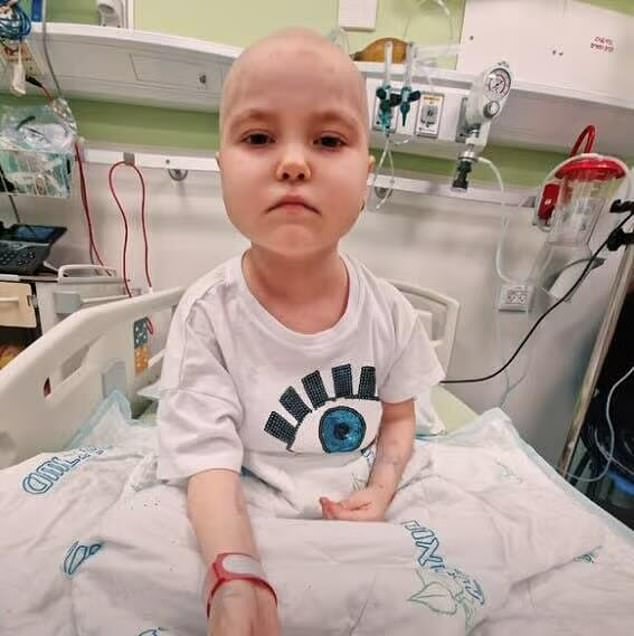
Seven-year-old Nastya Buryk died this week in the Iranian blitz on a Bat Yam apartment building in Tel Aviv
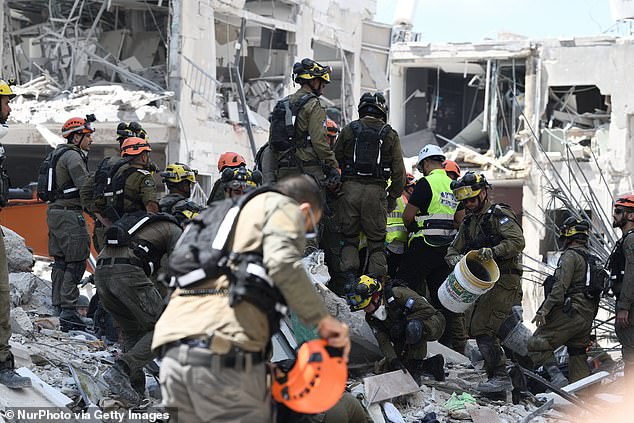
Rescue teams inspect a damaged building following a strike by an Iranian ballistic missile in Bat Yam on June 15

A man walks past a pile of destroyed cars, following an overnight Iranian missile strike in Bat Yam on June 15
It was clear she needed more specialist treatment, which was difficult to find in wartime Ukraine – and expensive if sought elsewhere.
What would you do if you could, as a parent, in such circumstances?
Partially helped by charitable donations, but largely self-funded, the family looked abroad. That December, Maria took Nastya to Israel.
This was almost a year before the Hamas massacre of October 7, and Israel was considered ‘safe’. While the father fought, his family would be out of a war zone and Nastya would get the top oncological treatment she needed to survive.
In Israel, Nastya underwent a bone marrow transplant. But the procedure did not work, and the leukaemia returned.
‘Yes, we are on the edge again,’ Maria told her social media followers. ‘Yes, the transplant did not help.’ Money was also a problem.
On one occasion Nastya was even discharged by a hospital because her family could no longer pay her bills. Artem recorded videos from the front line, appealing for donations. Some previous donors had given up hope.
Then came fresh encouragement. A radical new treatment was proposed by Israeli oncologists to encourage the failed bone marrow transplant to work.
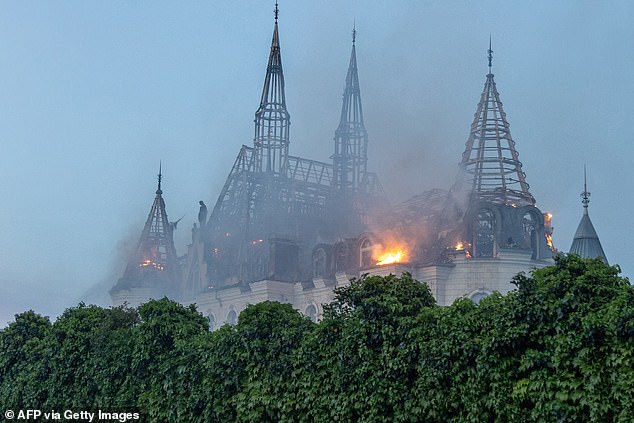
Picture shows a burning building in Odesa, Ukraine, as a result of a Russian missile attack in April last year
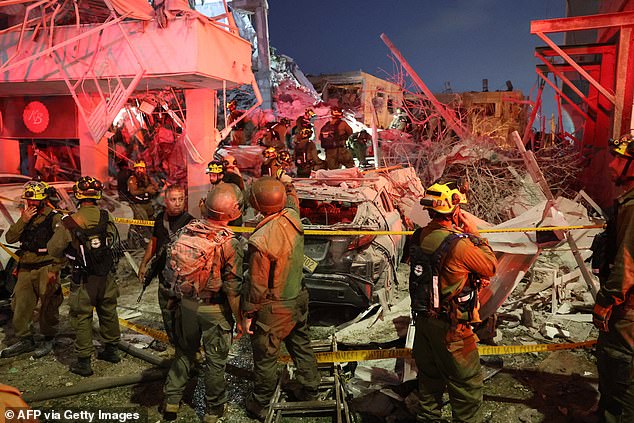
Responders work amid building rubble following a strike by an Iranian missile on June 15
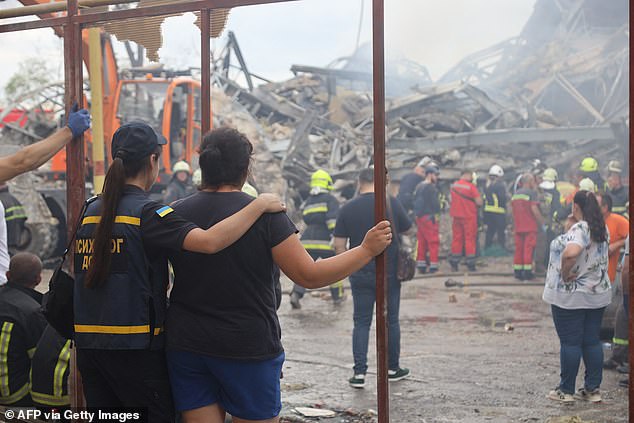
People watch as Ukrainian rescuers dismantle the rubble of a destroyed administrative building in the center of Odesa after a missile strike on July 20, 2023
It would not be without jeopardy or pain for the little girl.
‘We are taking a risk, but in our case the disease can win without it. I am afraid, but I choose hope,’ her mother wrote earlier this year.
This spring, Nastya’s grandmother Olena, 60, flew out to Israel to lend her support.
She brought with her two of Nastya’s cousins, Konstantin and Ilya, aged nine and seven.
They were enrolled in local infant schools. It would be safer than Odesa, still subject to deadly missile barrages.
Then, last week, the world changed again. Israel launched Operation Rising Lion, a surprise attack on Russia’s ally, Iran, with the aim of destroying its nuclear and ballistic missile threat.
Iran retaliated with volleys of missiles and drones at Israel. On the first day of the barrage, June 13, one of those missiles struck the apartment block in the coastal city of Bat Yam in which Nastya’s family had rented a home.
The little girl, her mother, grandmother and the two boys, were all killed. Only father Artem, fighting on the front line in Kyiv, remains alive.
Yet, amid the widespread carnage and geo-political implications arising from Rising Lion, and the horrors visited this week on Kyiv, their unique tragedy has passed almost unnoticed.












